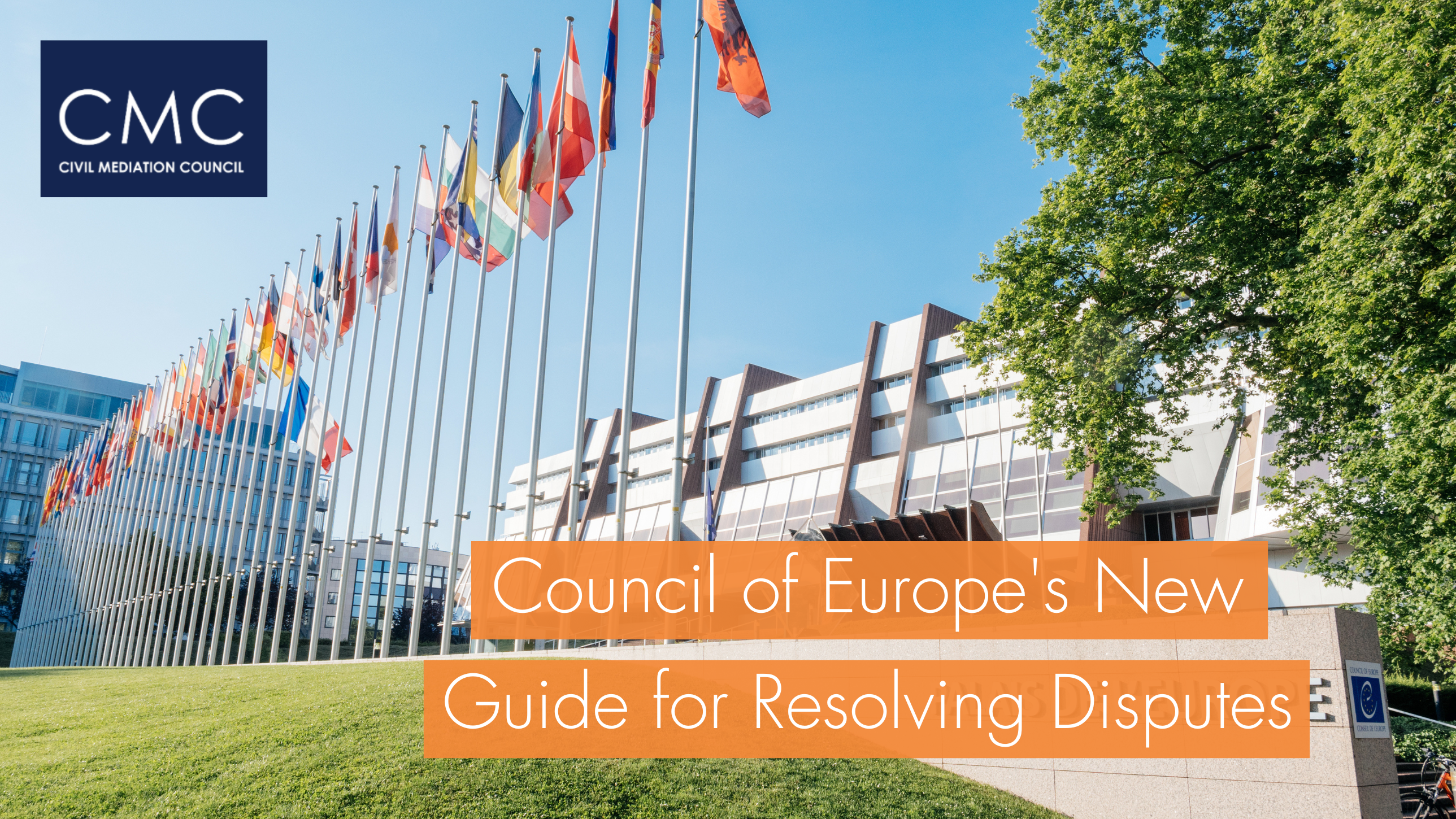Council of Europe – Promoting Mediation to Resolve Administrative Disputes
Council of Europe – Promoting Mediation to Resolve Administrative Disputes
BY KARIM SALEM AND MARGARET DOYLE
Mediation is a powerful tool for resolving administrative disputes, and the Council of Europe is leading the way in promoting its use. In their blog post co-authors Karim Salem and Margaret Doyle explore the CEPEJ’s new guide on administrative mediation and the research behind it. They share fascinating insights on the diverse practices of mediation across member states, revealing the need for a comprehensive definition. Don’t miss this deep dive into the contextual factors behind administrative mediation.

Promoting mediation to resolve administrative disputes in Council of Europe member states
‘Administrative mediation’ is the focus of a new guide produced by the Council of Europe to encourage the use and oversight by member states of mediation to resolve disputes raised by private parties against government authorities. In this two-part blog post, the co-authors discuss the new guide and the research on which it is based (in Part 1) and explore the landscape of administrative mediation in one member state, the UK (in Part 2).
Last December, the European Commission for the Efficiency of Justice (CEPEJ) adopted a new tool with the purpose of promoting the use of mediation in administrative matters among Member States of the Council of Europe (CoE). This new tool stands out from other CEPEJ tools promoting alternative dispute resolution (ADR), as it is the first to focus specifically on administrative mediation.
To ensure the production of a comprehensive tool, the CEPEJ experts [1] took a proactive approach to understand the current state of administrative mediation practices. They conducted interviews with national mediation practitioners and distributed comprehensive questionnaires to relevant stakeholders in all member states. The goal was to gather information and fill any gaps in knowledge surrounding administrative mediation.
Diversity Of Situations Across CoE Member States
The analysis of responses received, as well as mediation national legal frames and relevant studies revealed intriguing insights. First, there is a noticeable disparity between member states regarding their understanding of the mediation process. This is reflected in the differences in the definitions and terms used to refer to the process. The perception of administrative mediation varies among CoE member states. In Switzerland, it is exclusively viewed as a process executed by an institutional body, whereas in other legal systems it may be performed by professional mediators or judges. The terminology used to describe this process also differs across member states, with terms such as “mediation” in France, “amicable settlement” in Luxembourg, “conclusion of a peace agreement” in Lithuania, “conciliation” in Germany, etc. So, from the very beginning, it was evident that any tool aimed to promote administrative mediation in CoE member States, would need to prioritize providing a comprehensive definition to unify divergent conceptions.



